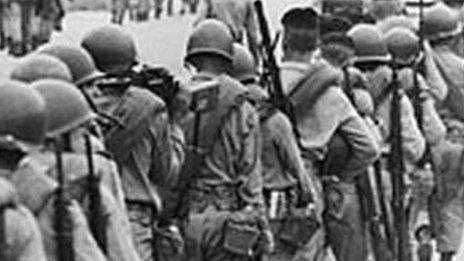Brazil ex-president was 'not killed in political plot'
- Published
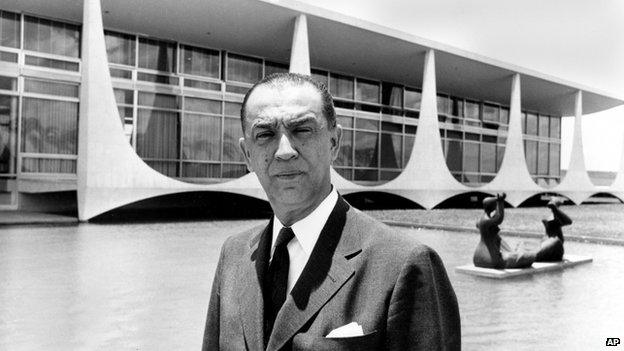
Juscelino Kubitschek died after a car crash on a motorway between Rio de Janeiro and Sao Paulo in 1976
Brazil's ex-President Juscelino Kubitschek was not murdered by the country's 1970s military regime despite previous claims, according to a national investigation.
The National Truth Commission said the car crash in which Mr Kubitschek died in 1976 was a genuine accident.
A local commission in Sao Paulo said in December that it had found proof he was a victim of a political plot.
Mr Kubitschek, 73, was a popular opposition leader at the time.
The centrist politician, who famously relocated Brazil's capital from Rio de Janeiro to the newly designed city of Brasilia, died on 22 August 1976 following a car accident on a motorway between Rio de Janeiro and Sao Paulo. His driver was also killed.
Different conclusions
The former president had just regained his political rights.
For decades, there have been rumours that JK, as the Brazilian president from 1956 to 1961 was known, had been the victim of a murder conspiracy.
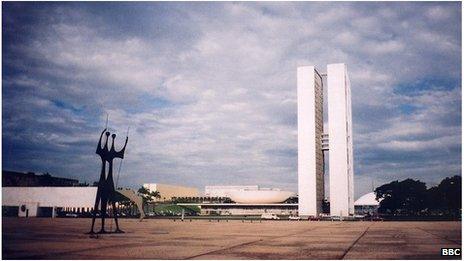
Mr Kubitschek relocated Brazil's capital to the newly-built Brasilia in 1960
But a two-year investigation by the National Truth Commission said on Tuesday it had found no evidence that the fatal car crash was the work of the country's then-military regime.
"There isn't anything in the documents, expert reports or photos that are part of the current analysis that even suggest that ex-President Juscelino Kubitschek and (driver) Geraldo Ribeiro were murdered," local reports quote the commission as saying.
The announcement goes against the results of a separate investigation by the Sao Paulo truth commission, which said there was "documentary proof" that he was the victim of a conspiracy.
It is unclear why the two commissions reached such different conclusions.
Prevents prosecutions
Brazil's National Truth Commission, which started work in May 2012, agreed to investigate the conspiracy claims with the help of the presidency's human rights commission.
It is also looking into a number of other human rights abuses that allegedly took place during Brazil's military rule.
The remains of Mr Kubitschek's successor, Joao Goulart, another opposition leader, were exhumed last year as part of investigations into whether he was murdered.
The Brazilian government acknowledged in 1995 that the state was responsible for killings, disappearances and torture during military rule, but a 1979 Amnesty Law prevents any prosecutions.
Military rule spanned 21 years, from 1964 to 1985. More than 400 people were either killed or disappeared, while thousands were tortured.
President Dilma Rousseff was herself arrested and tortured during the dictatorship.
- Published14 November 2013
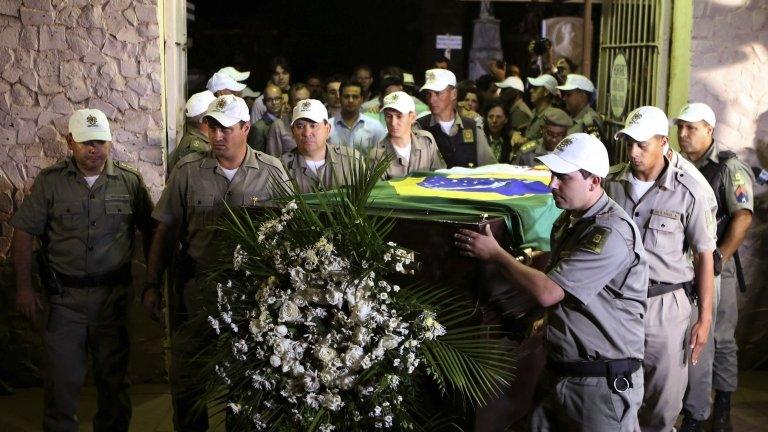
- Published16 May 2012
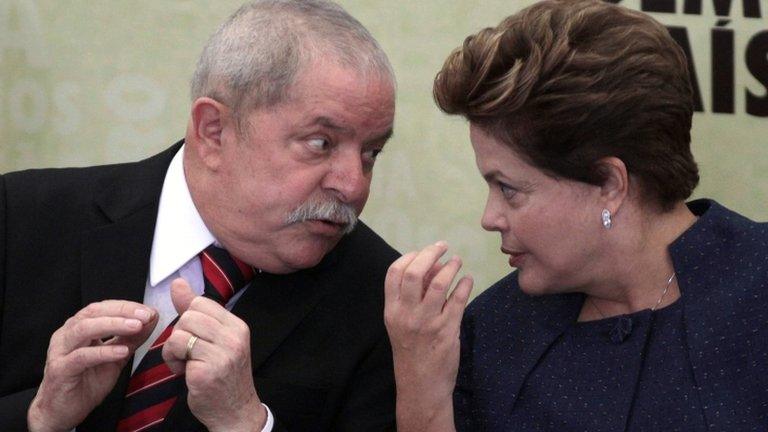
- Published18 November 2011

- Published27 October 2011
